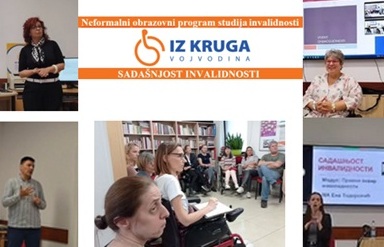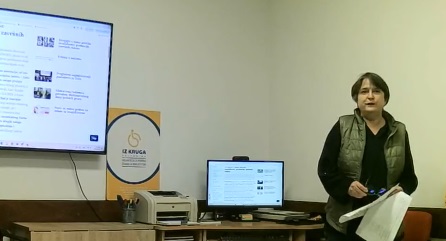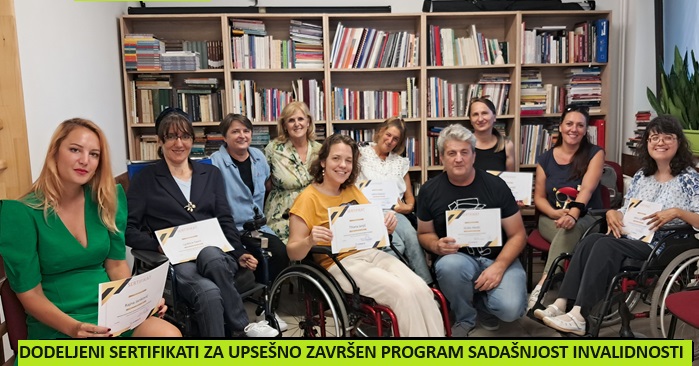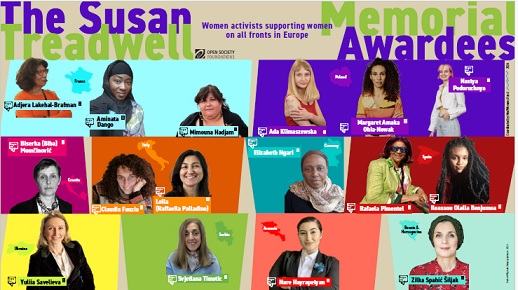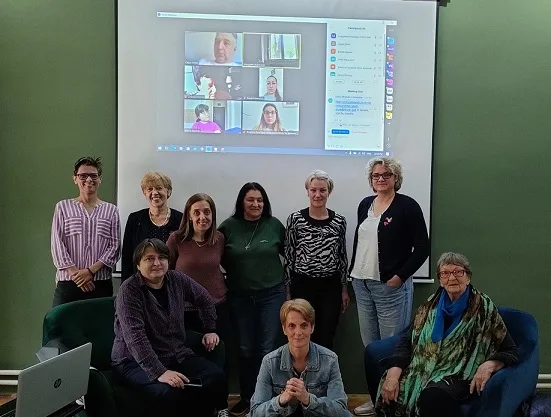The International Conference Why Do We Need Disability Studies took place in the Rectory building of Novi Sad University on December 12, 2023, from 13.00 to 16.30.
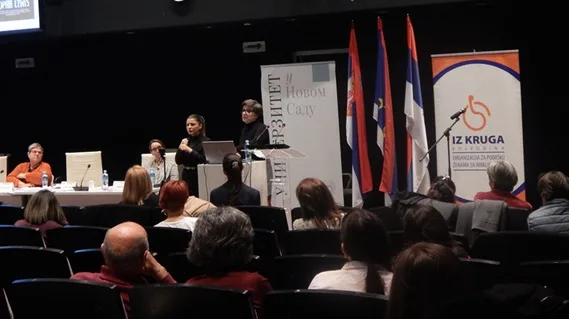
The conference attendees were present and future experts from numerous domains: social work, medicine, psychology, law, media and communication, civil engineering, architecture, and activists of organizations of persons with disabilities.
IZ KRUGA VOJVODINA organized the conference in cooperation with the Social Work Studies of the Faculty of Philosophy, Novi Sad University. It is categorized as an international conference by the Decision of the Chamber of Social Protection no. 55075-2468/2023 from November 21, 2023. All presentations at conferences were translated into sign language by interpreters Marija Gabnai and Dajana Erceg from the Association of Sign Language Interpreters.
An introduction to the subject – Why do we need disability studies, was given by lecturers from American universities, Andjela Kaur, a professor at the Rehabilitation and Human Services Program Studies at Pennsylvania State University, and Olivera Jokic, a director and professor at the Gender Studies Program, John Jay College, City University New York.

Andjela Kaur problematized disability studies as a relatively short, separate scientific research area in higher education that cannot be reduced merely to the academic context, but the impact on established professional practices in health care, urban planning, pedagogy, and social work must be considered.
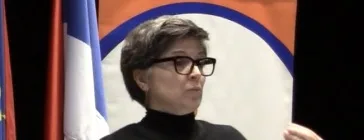
Olivera Jokic talked about the relationship between gender studies and disability studies. She emphasized that gender studies regard all personal as political, and they deal with questions how we use and how „natural“ categories and „normal“ values appear in modern society that keeps changing. Disability and gender studies jointly ask how shared values are adopted and used and how a diverse society that likes to know what is „normal“ thinks about itself.

After the introductory speeches, Andjela Kaur spoke briefly about critical disability studies in America, and then respected professors and experts from our faculties and institutions spoke about what contents from the field of disability studies are included in the curricula of bachelor’s and master’s academic studies at different study programs and faculties:
- Special Rehabilitation and Education – Dr. Vesela Milankov, head of the department and a professor at the Special Education and Rehabilitation Department, Faculty of Medicine, Novi Sad University;
- Preschool teacher training – Dr. Otilia Velisek Brasko, a professor at the Preschool Teacher Training College, Novi Sad;
- Social Work – Dr. Jovana Skoric, a professor at Social Work Studies, Faculty of Philosophy, Novi Sad University;
- Legal science – Olivera Pejak Prokes, a judge of the Court of Appeal Novi Sad;
- Architecture and Civil Engineering – Bojana Rudic Pocuc, a member of the City Accessibility Team Novi Sad.

Within the topic block – the Civil Initiative for Disability Studies in our country, prominent representatives of the movement for the rights of persons with disabilities spoke about the various contributions made so far to the creation of disability studies in Serbia:
- Gordana Rajkov’s proposals for disability studies – Mimica Zivadinovic, Center for Independent Living of Persons with Disabilities, Belgrade;
- Feminist disability theory in women and gender studies in Serbia – Milesa Milinkovic, Creative Affirmative Organization Parnassus, Novi Sad;
- Creating prerequisites for the establishment of disability studies in Novi Sad – Svjetlana Timotic, Organization for Supporting Women with Disabilities …IZ KRUGA – VOJVODINA, Novi Sad;
- Disenablement Studies: From Literature to Academic Studies – Sinisa Tucic, Novo kulturno naselje, Novi Sad.
Tatjana Stojsić Petkovic, a member of IZ KRUGA VOJVODINA and president of the National Organization of Persons with Disabilities, served as a facilitator for both topic blocks.
All participants evaluated the meeting positively, stressing primarily the importance of discussing this topic at an academic level. The active participants expressed their gratitude for having the opportunity to contribute to the quality of this meeting; both listeners and presenters stated that they enjoyed the presentations and that they heard a lot of new things from the field of disability studies, that they were surprised that so much has already been done in our country and, in particular, everyone emphasized the excellent and timely organization of such a meeting with international participation.
At the summary of the international conference, Andjela Kaur pointed out as a general conclusion that we need disability studies and cited various reasons given by the participants that testify to the wide range of viewpoints from which disability could be researched. Some participants indicated the need to translate books and professional papers from the English language area and thus innovate sources of knowledge in the disability studies domain in the Serbian language. The others are convinced that the prerequisites exist and that it is only necessary to convene already existing professional staff, knowledge, and experience in the field of disability and start studies of disability immediately, even as an informal educational program to begin with.
